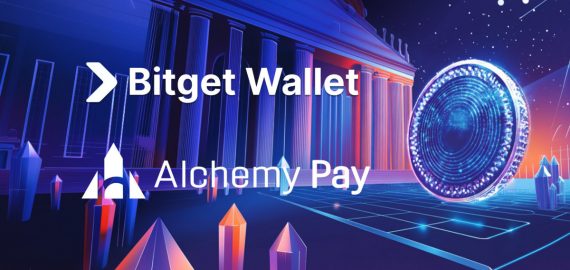Top 5 Decentralized Finance (DeFi) Projects Making Waves on Avalanche in 2025


In Brief
Decentralized Finance (DeFi) projects have become popular among investors, with Avalanche being one of the main hubs in 2025.
The promise of upending the traditional banking world has made Decentralized Finance (DeFi) a fertile ground for investment and innovation.
Over the years, DeFi projects have become so popular that many chains, including Ethereum and Solana, host these products, each with a unique feature.
Avalanche is also one of the main DeFi hubs in 202,5 with many trending projects. Five of them are:
GMX
GMX is an autonomous market for cryptocurrencies that focuses on perpetual futures contracts.
Its unique strength is that it can give liquidity providers a cut of the exchange’s trade fees, giving them a high return on yield.
GMX doesn’t use the traditional DEX design with two token pools. Instead, it has a single liquidity pool that’s half stablecoins and half different tokens, like ETH and BTC. All platform traders tap into this pool, where the data feed of Chainlink oracles contributes accurate insights into the value of each coin.
GMX also offers two tokens. One is GMX, a utility and governance that gives holders the right to vote on governance proposals while receiving 30% of platform fees as a reward. By locking their GMX holdings, LPs will get the second token, GLP, earning them 70% of the fees.
GMX Advantages
High leverage
GMX lets you trade with up to 50x leverage, which is more than most competitors on the market.
Multi-chain compatibility
Besides Avalanche, GMX is compatible with Arbitrum, offering efficient, low-fee transactions compared to other DEXs.
Single liquidity pool
GMX doesn’t use the traditional DEX design with two coin pools. Instead, it uses a single liquidity pool.
Trader Joe
Following in Uniswap’s footsteps, the Trader Joe DEX adopted the AMM architecture. This makes it very easy for users to switch among various Avalanche tokens. Trader Joe provides complex DeFi features like yield farming on top of standard trading operations, offering JOE token holders or LPs a way to earn rewards.
Besides serving as a medium of exchange, JOE offers holders the right to governance, letting them vote on key platform decisions.
Then, there’s the Liquidity Book. The model uses a “bin” structure to categorize price ranges so that LPs can choose where to focus their tokens. It lets people choose where to put their money so that it is most profitable instead of spreading it out over an endless range.
Trader Joe Advantages
Liquidity Book Model
The Liquidity Book allows LPs to get the most out of their staked funding instead of spreading them over an infinite range.
Minimal slippage
By aggregating liquidity at specific intervals, the platforms allow traders to enjoy minimal slippage on trades with no price impact. This is best for institutional traders and whales.
LayerZero partnership
The partnership with this omnichain protocol allows traders to use their JOE holdings on various chains.
Stargate
When it comes to facilitating the flow of liquidity across networks at different layers, Stargate Finance has emerged as a significant participant in the DeFi space. Like many DeFi projects, STG is Stargate’s governance and utility token, offering voting rights and staking rewards to holders.
Stargate solves the “bridging trilemma” in a novel way with its innovative Delta Algorithm, which allows for native asset support, unified liquidity, and instantaneous transaction finality.
But what makes Stargate Finance work is that it uses Layer Zero technology, which is a system that makes cross-chain contact safe and quick. Layer Zero is the base layer that lets different blockchain networks interact directly and with little trust. With this technology, Stargate Finance can provide unprecedented speed and connectivity.
Stargate Advantages
Cross-chain pools
Through these pools, users can store tokens on one chain and easily move them to another without having to use complicated and sometimes expensive bridging arrangements.
Layer Zero security
Using the Layer Zero technology, Stargate boosts security and decentralization by distributing trust across different chains, making the platform less vulnerable to single-point failures.
Instant Guaranteed Finality
By rejecting swap orders with insufficient reserve balances, the platform prevents any liquidity or token incompatibility issues that might lead to bridging failures.
BENQI
BENQI facilitates lending and liquid staking and lets users earn returns on their assets, making it one of the most popular Avalanche projects.
QI is the native utility token of BENQI, offering holders staking rewards. Users can also stake QI on the liquid pool and earn veQI, the governance token, to participate in shaping the platform’s future.
The liquidity pool is quite special because it integrates the best features of an order book with those of an AMM. This strategy offers minimal slippage and good liquidity when trading higher asset values.
Using the BENQI Liquid Staking (BLS) solution, users can stake AVAX and acquire sAVAX, a yield-bearing token that generates yield from Avalanche validator awards. Everyone is welcome to use sAVAX in whatever DeFi app they choose or exchange it with others.
BENQI Advantages
Multi-chain interoperability
The platform is at the forefront of interoperability solutions, allowing token holders to use their QI assets on other chains and boosting their asset utility and accessibility.
Composability
BENQI is based on the principle of composability, which allows users to build robust financial tools by combining diverse protocols. Users get access to a flexible component of the DeFi ecosystem by possessing QI tokens. They may increase their earning potential and gain control of their assets by incorporating QI into their DeFi initiatives.
Democratic delegation
Thanks to veQI, users may choose which Avalanche validators to support with extra delegations. They can use their votes to determine how much AVAX from the liquid staking pool is delegated to each validator.
WOOFi
The last DeFi project to make waves is WOOFi, which uses synthetic assets and complex pricing algorithms in novel ways. Attractive to novice and seasoned traders, this platform provides a smooth trading experience with little slippage and narrow spreads.
The biggest selling point of WOOFi is the Synthetic Proactive Market Making (sPMM) algorithm. On-chain oracles from WOOFi, which operate at high frequencies, complement the algorithm. This paves the way for expert market makers to model the on-chain order book’s spread and pricing on CEXs.
WOOFi also differentiates itself from the competition with Supercharger Vaults. When users stake tokens in the vault, they give the sPMM pool manager control of the liquidity. This way, users risk only the tokens they put in and don’t have to worry about temporary losses.
WOOFi Advantages
dApp rebates
As the only swap DEX to pay dApp rebates, the platform offers the broker 20% of swap fees in the form of stablecoins. This is the reward for routing trades to WOOFi.
Multiplier Points (MP)
Similar to GMX, this reward system encourages long-term staking, offering 30% rewards for stakers. For instance, staking 300 WOO rewards them about 100 MPs.
Capital efficiency
Compared to other conventional AMMs, WOOFi offers a high level of execution quality while having a much lower TVL, allowing traders to use their capital better.
Disclaimer
In line with the Trust Project guidelines, please note that the information provided on this page is not intended to be and should not be interpreted as legal, tax, investment, financial, or any other form of advice. It is important to only invest what you can afford to lose and to seek independent financial advice if you have any doubts. For further information, we suggest referring to the terms and conditions as well as the help and support pages provided by the issuer or advertiser. MetaversePost is committed to accurate, unbiased reporting, but market conditions are subject to change without notice.
About The Author
Victoria is a writer on a variety of technology topics including Web3.0, AI and cryptocurrencies. Her extensive experience allows her to write insightful articles for the wider audience.
More articles

Victoria is a writer on a variety of technology topics including Web3.0, AI and cryptocurrencies. Her extensive experience allows her to write insightful articles for the wider audience.

















































